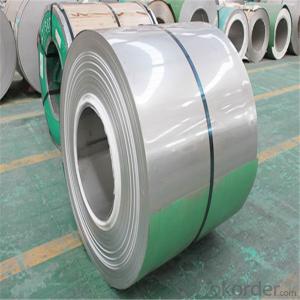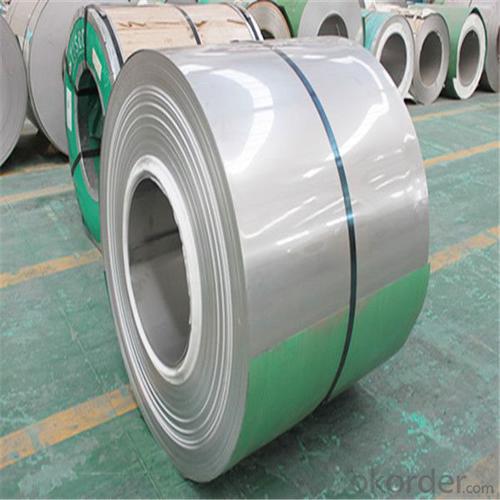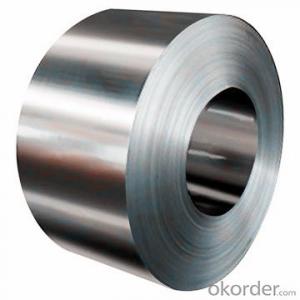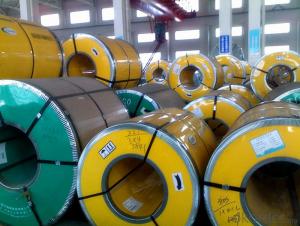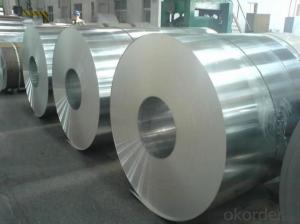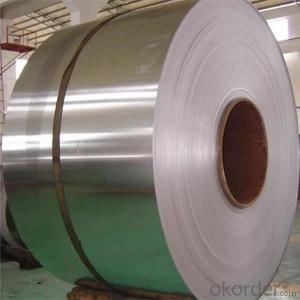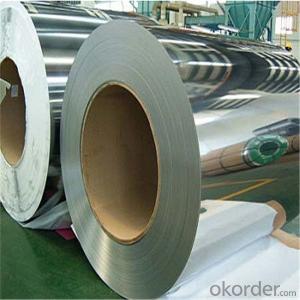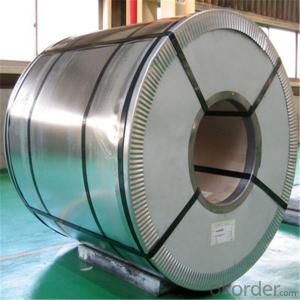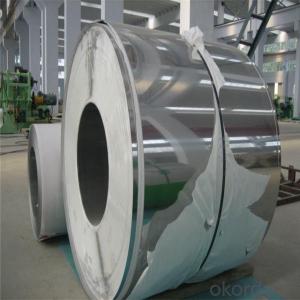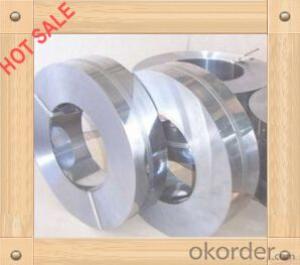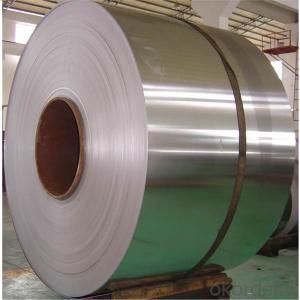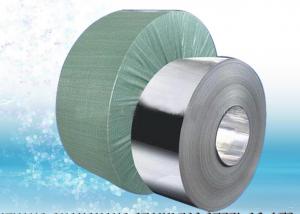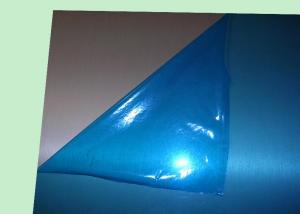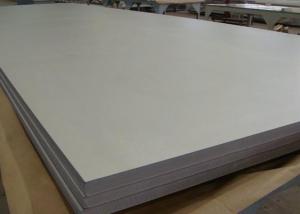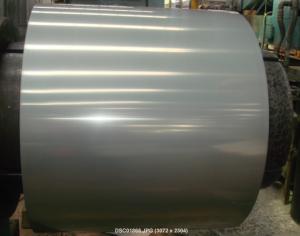Stainless Steel Coil Price Per Ton in China
- Loading Port:
- Shanghai
- Payment Terms:
- TT OR LC
- Min Order Qty:
- 5 m.t.
- Supply Capability:
- 100000 m.t./month
OKorder Service Pledge
OKorder Financial Service
You Might Also Like
Specification
Item Details:
1, 2b cold rolled stainless steel coil with thickness 0.25~1.2mm
2, Finishing: 2B
3, Width: 15~600mm
4. Tolerance: -0.01mm~0.01mm
Our advantage
1, High quality: Using lastest automated control equipment to ensure 2b cold rolled stainless steel coil quality, such as AGC system.
2, Best Price: With most automated equipments to cost down.
3, Fast delivery: Since your order placed, ETD will be only 10 days.
4, Best Sevice: We do believe your encouragement is the best support for us.
Shipping information:
1, Payment terms: T/T 30% for depsoit, Balance against the copy of B/L; or L/C at sight
2, ETD: 10-15 days after the receipt of the deposit
3, Ship terms: FOB Ningbo
4, Minimum quantity: 5 tons
Contact and Feedback:
If you are interested in 2b cold rolled stainless steel coil or any question, please feel free to contact us. We will reply you within 24H.
Our Main products:
We are professional manufacturer of 201, 202, 304, 304J1 an 316L stainless steel coil. With 2B finishing, width 20 to 600mm thickness 0.25mm to 1.2mm or width 600mm to 1220mm thickness 0.3mm to 1.5mm.
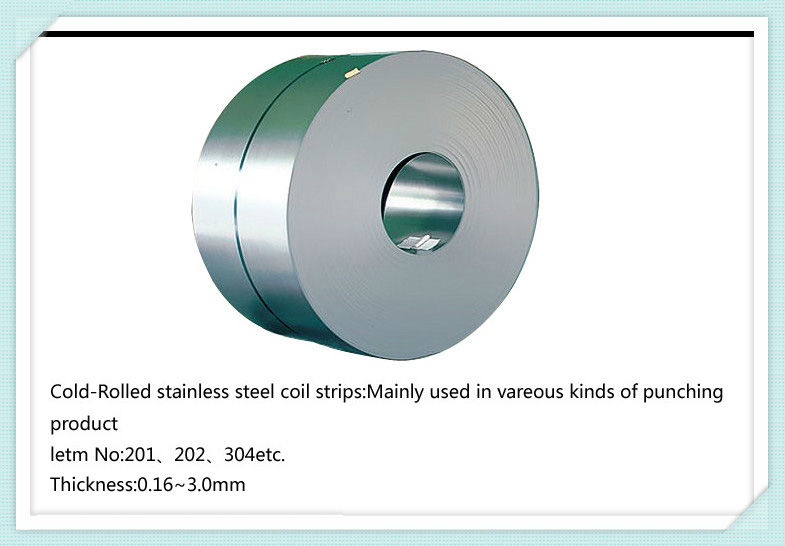
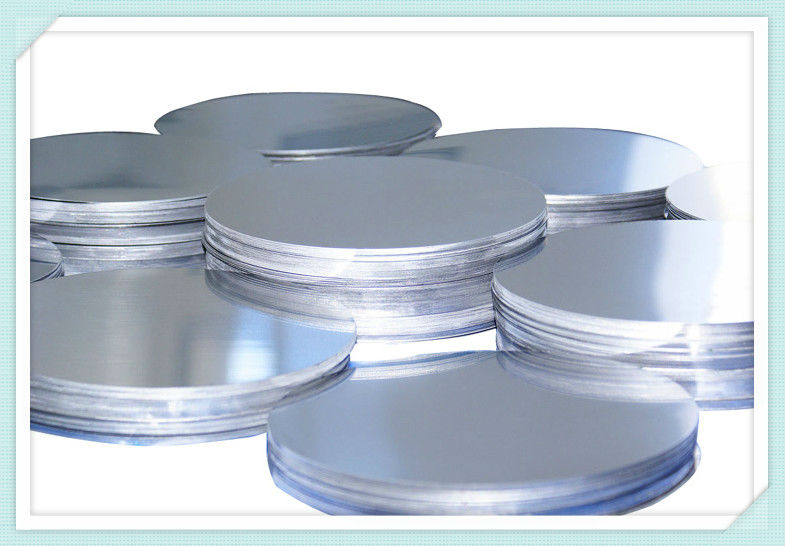
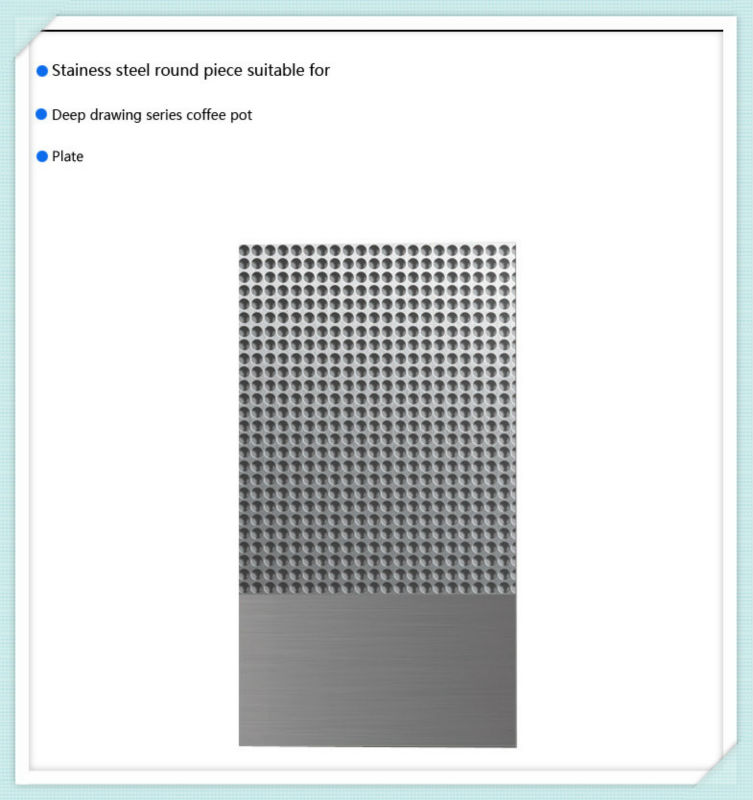
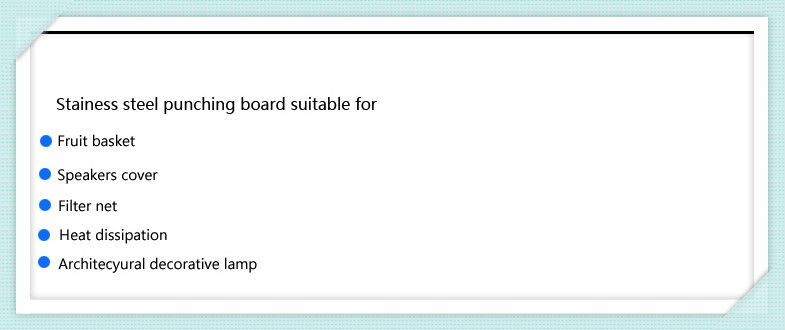
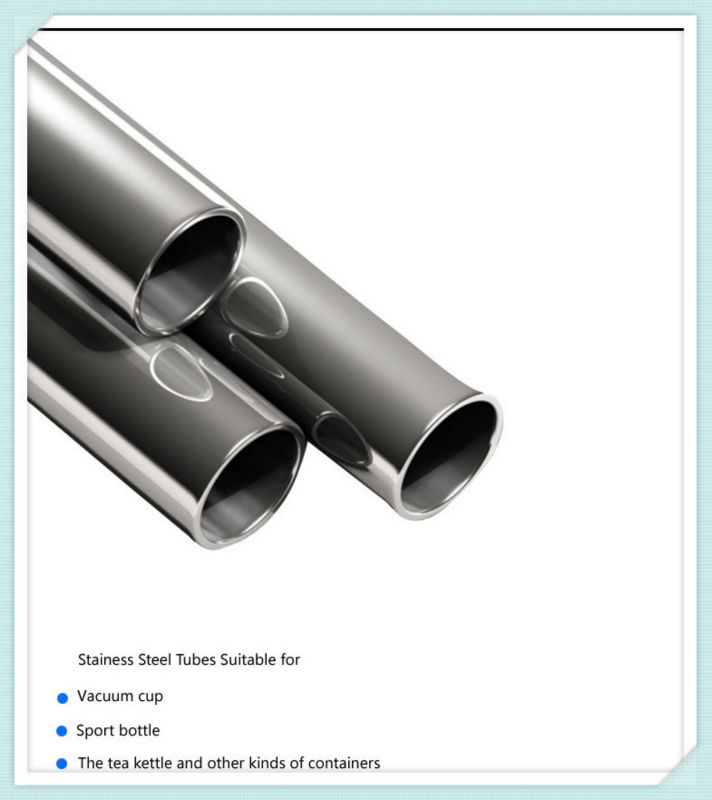
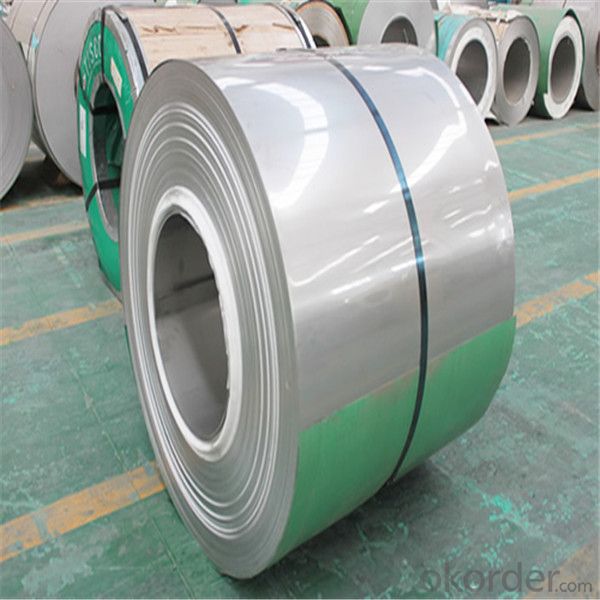
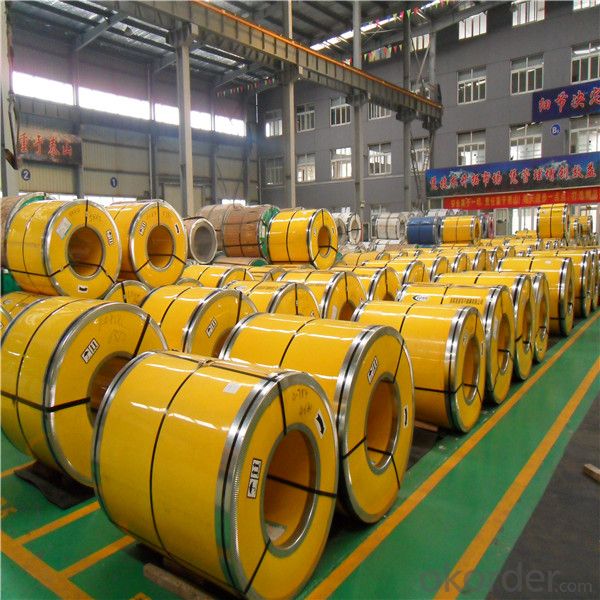
- Q: What is the lifespan of stainless steel strips?
- The lifespan of stainless steel strips can differ based on several factors, including the grade of stainless steel, the environment they are used in, the maintenance practices followed, and the specific application they are being used for. Stainless steel is widely recognized for its resistance to corrosion and durability, which contribute to its extended lifespan compared to other materials. In most scenarios, stainless steel strips can endure for many decades, if not longer. The remarkable corrosion resistance of stainless steel helps prevent rust and deterioration, significantly extending its lifespan. Additionally, stainless steel can withstand extreme temperatures, chemicals, and physical wear and tear, making it suitable for a wide range of applications. Nevertheless, it is important to consider that external factors can influence the lifespan of stainless steel strips. For example, if the strips are exposed to highly corrosive environments, like saltwater or acidic conditions, their lifespan may be shortened. In such instances, regular maintenance and proper cleaning can help extend their lifespan. Moreover, the grade of stainless steel used in the strips can also impact their lifespan. Certain grades, such as 316 or 2205, are specifically engineered to withstand harsh environments and offer enhanced corrosion resistance compared to lower grades. To maximize the lifespan of stainless steel strips, it is crucial to adhere to proper installation and maintenance practices. This may involve regular cleaning, applying protective coatings, and avoiding contact with incompatible materials. In conclusion, stainless steel strips possess a lengthy lifespan due to their inherent corrosion resistance and durability. However, the actual lifespan can vary based on factors like grade, environment, maintenance, and application. By selecting the appropriate grade, following proper maintenance practices, and considering the specific requirements of the application, stainless steel strips can deliver exceptional longevity and performance.
- Q: Are stainless steel strips non-magnetic?
- No, stainless steel strips are not inherently non-magnetic. The magnetic properties of stainless steel strips depend on the specific composition and processing methods used in their production. Some stainless steel alloys can be magnetic, while others are non-magnetic.
- Q: Can stainless steel strips be used in wastewater treatment plants?
- Certainly, wastewater treatment plants can employ stainless steel strips. Due to its exceptional durability and resistance to corrosion, stainless steel proves to be a fitting material for environments with significant moisture and chemical contact, like wastewater treatment plants. The utilization of stainless steel strips covers a wide range of applications in these facilities, encompassing piping, tanks, screens, and other equipment. Furthermore, stainless steel's ability to inhibit bacterial growth and its ease of cleaning contribute to its hygienic suitability for wastewater treatment purposes.
- Q: What are the different surface patterns available for stainless steel strips?
- Stainless steel strips come in a variety of surface patterns, each with its own unique characteristics and aesthetics. Some commonly used patterns include the following: 1. The No. 1 finish is the most frequently used surface finish for stainless steel strips. It has a rough, dull, and non-reflective surface, typically achieved through hot rolling methods. 2. The No. 2B finish is obtained by subjecting the strip to a further cold rolling process after the No. 1 finish. It has a slightly smoother and brighter appearance compared to the No. 1 finish, with a moderate level of reflectivity. 3. The No. 3 finish, also known as a brushed finish, involves brushing the stainless steel strip with abrasive materials. This creates a distinct linear brushed pattern, giving the strip a textured and matte appearance. 4. The No. 4 finish is a highly popular surface pattern. It is achieved by polishing the strip with finer abrasives, resulting in a smoother and more reflective surface compared to the No. 3 finish. It has a satin-like appearance. 5. The No. 8 mirror finish is the highest level of polish achievable for stainless steel strips. It undergoes a series of polishing steps to achieve a reflective, mirror-like surface. It is often used in architectural applications and for decorative purposes. 6. Embossed patterns are another option for stainless steel strips. Various patterns, such as diamond, linen, or leather grain, can be embossed onto the strip by pressing it between embossing rollers. This results in textured surfaces with an appealing visual appearance. 7. Perforated patterns are created by punching holes into the stainless steel strip using specialized machinery. This allows for different hole patterns, shapes, and sizes, providing enhanced functionality and design possibilities. These diverse surface patterns for stainless steel strips offer versatility and cater to a range of applications, including architecture, automotive, household appliances, and decoration. The choice of surface pattern depends on the desired aesthetic appearance, functionality, and specific project requirements.
- Q: Can stainless steel strips be used in the production of architectural façades?
- Yes, stainless steel strips can be used in the production of architectural façades. Stainless steel is a highly versatile and durable material that offers numerous benefits for façade applications. It is resistant to corrosion, which ensures the longevity and aesthetics of the façade. Additionally, stainless steel has a sleek and modern appearance that can enhance the overall design of the building. It is also available in various finishes, such as brushed or polished, allowing for customization and design flexibility. Moreover, stainless steel strips can be easily formed and fabricated to create different shapes and profiles, enabling architects to achieve unique and intricate façade designs. Overall, stainless steel strips are a popular choice in architectural façade production due to their durability, aesthetic appeal, and versatility.
- Q: What are the common uses of stainless steel strips in the HVAC industry?
- Stainless steel strips are widely used in the HVAC (Heating, Ventilation, and Air Conditioning) industry due to their excellent properties and versatility. Some of the common uses of stainless steel strips in this industry include: 1. Ductwork: Stainless steel strips are commonly used for fabricating ducts in HVAC systems. The ducts made from stainless steel strips are durable, corrosion-resistant, and can withstand high temperatures and pressure. They provide a reliable and long-lasting solution for air distribution in residential, commercial, and industrial buildings. 2. Heat exchangers: Stainless steel strips are often utilized in the construction of heat exchangers, which are essential components in HVAC systems. Heat exchangers made from stainless steel strips provide efficient heat transfer, ensuring effective heating or cooling of air or water. The corrosion resistance of stainless steel makes it suitable for handling different fluids and prevents equipment failure due to rust or corrosion. 3. Ventilation systems: Stainless steel strips are commonly used in the manufacturing of ventilation systems, including air handling units, exhaust fans, and air filters. These systems require materials that can withstand harsh environments and maintain proper airflow. Stainless steel strips offer resistance to corrosion, heat, and chemical exposure, making them ideal for constructing durable and efficient ventilation systems. 4. Pipe and tubing: Stainless steel strips are frequently used for manufacturing pipes and tubing in HVAC applications. These components transport fluids such as refrigerants, coolants, and condensate. Stainless steel strips provide excellent resistance to corrosion, which is crucial in preventing leaks and ensuring the longevity of the HVAC system. 5. Furnace parts: Stainless steel strips are used in the fabrication of various furnace components, including burners, heat shields, and combustion chambers. These parts are exposed to high temperatures, flames, and corrosive gases. Stainless steel strips offer high-temperature resistance, oxidation resistance, and durability, ensuring the efficient and safe operation of furnaces in HVAC systems. Overall, stainless steel strips are valued in the HVAC industry for their durability, corrosion resistance, high-temperature resistance, and versatility. They play a crucial role in ensuring the efficiency, reliability, and longevity of HVAC systems in diverse applications.
- Q: What are the common uses of stainless steel strips in the aerospace fastener industry?
- Due to their exceptional properties, stainless steel strips find widespread use in the aerospace fastener industry. Fasteners, such as bolts, screws, and rivets, are commonly manufactured using stainless steel strips, fulfilling a crucial role in securing aircraft components and ensuring the aircraft's structural integrity and safety. The aerospace industry favors stainless steel strips for several reasons. These strips possess a high strength-to-weight ratio, corrosion resistance, and the ability to withstand extreme temperatures. Consequently, they are well-suited for fasteners exposed to challenging environments like high altitudes, extreme temperatures, and corrosive substances. Stainless steel strips also serve as essential materials for spring clips and retaining rings in the aerospace fastener industry. These components are vital for securing different parts of an aircraft, including panels, wires, and hoses. The flexibility and durability of stainless steel strips make them ideal for these applications, as they can endure repeated stress while retaining their shape and strength over time. Additionally, stainless steel strips play a role in producing shims and spacers in the aerospace fastener industry. Shims, thin strips inserted between surfaces to fill gaps or ensure precise alignment, and spacers, used to maintain specific component distances, benefit from the excellent dimensional stability and resistance to deformation offered by stainless steel strips. These qualities are crucial for applications where precision and reliability are paramount. To summarize, stainless steel strips have extensive applications in the aerospace fastener industry. Their high strength, corrosion resistance, ability to withstand extreme temperatures, and dimensional stability make them indispensable in manufacturing fasteners, spring clips, retaining rings, shims, and spacers. These components play a vital role in maintaining the structural integrity and safety of aircraft, establishing stainless steel strips as a crucial material in the aerospace industry.
- Q: How do you prevent stress corrosion cracking of stainless steel strips?
- To prevent stress corrosion cracking of stainless steel strips, several measures can be taken. First, it is essential to ensure that the stainless steel is of high quality and has a suitable chemical composition. Next, controlling the environment in which the strips are exposed is crucial. This involves avoiding exposure to corrosive substances such as chlorides, acids, and alkalis. Additionally, maintaining appropriate levels of temperature and humidity can help minimize the risk. Proper cleaning and regular inspections also play a significant role in preventing stress corrosion cracking. Finally, applying protective coatings or using corrosion inhibitors can provide an extra layer of defense against this type of corrosion.
- Q: Are stainless steel strips heat resistant?
- Stainless steel strips possess the characteristic of being resistant to heat. This material is renowned for its capacity to endure elevated temperatures without undergoing any deformation or harm. Its melting point is considerably high, enabling it to uphold its strength even under extreme thermal conditions. Consequently, stainless steel strips are highly suitable for a wide range of uses that involve exposure to heat, including industrial processes, cooking utensils, and automotive components. Moreover, the heat resistance of stainless steel significantly contributes to its durability and long-lasting nature, as it can endure thermal stress and maintain its structural integrity throughout the passage of time.
- Q: How do stainless steel strips resist corrosion?
- Stainless steel strips resist corrosion due to the presence of chromium in their composition. Chromium forms a thin, protective layer of chromium oxide on the surface of the steel when exposed to oxygen. This layer acts as a barrier, preventing further oxidation and corrosion from occurring. Additionally, stainless steel also contains other alloying elements such as nickel and molybdenum, which further enhance its corrosion resistance properties. These elements help to increase the passivity of the chromium oxide layer, making it more stable and less prone to breakdown. This inherent corrosion resistance makes stainless steel strips suitable for various applications in industries such as construction, automotive, and aerospace, where exposure to moisture, chemicals, and other corrosive agents is common.
Send your message to us
Stainless Steel Coil Price Per Ton in China
- Loading Port:
- Shanghai
- Payment Terms:
- TT OR LC
- Min Order Qty:
- 5 m.t.
- Supply Capability:
- 100000 m.t./month
OKorder Service Pledge
OKorder Financial Service
Similar products
Hot products
Hot Searches
Related keywords
